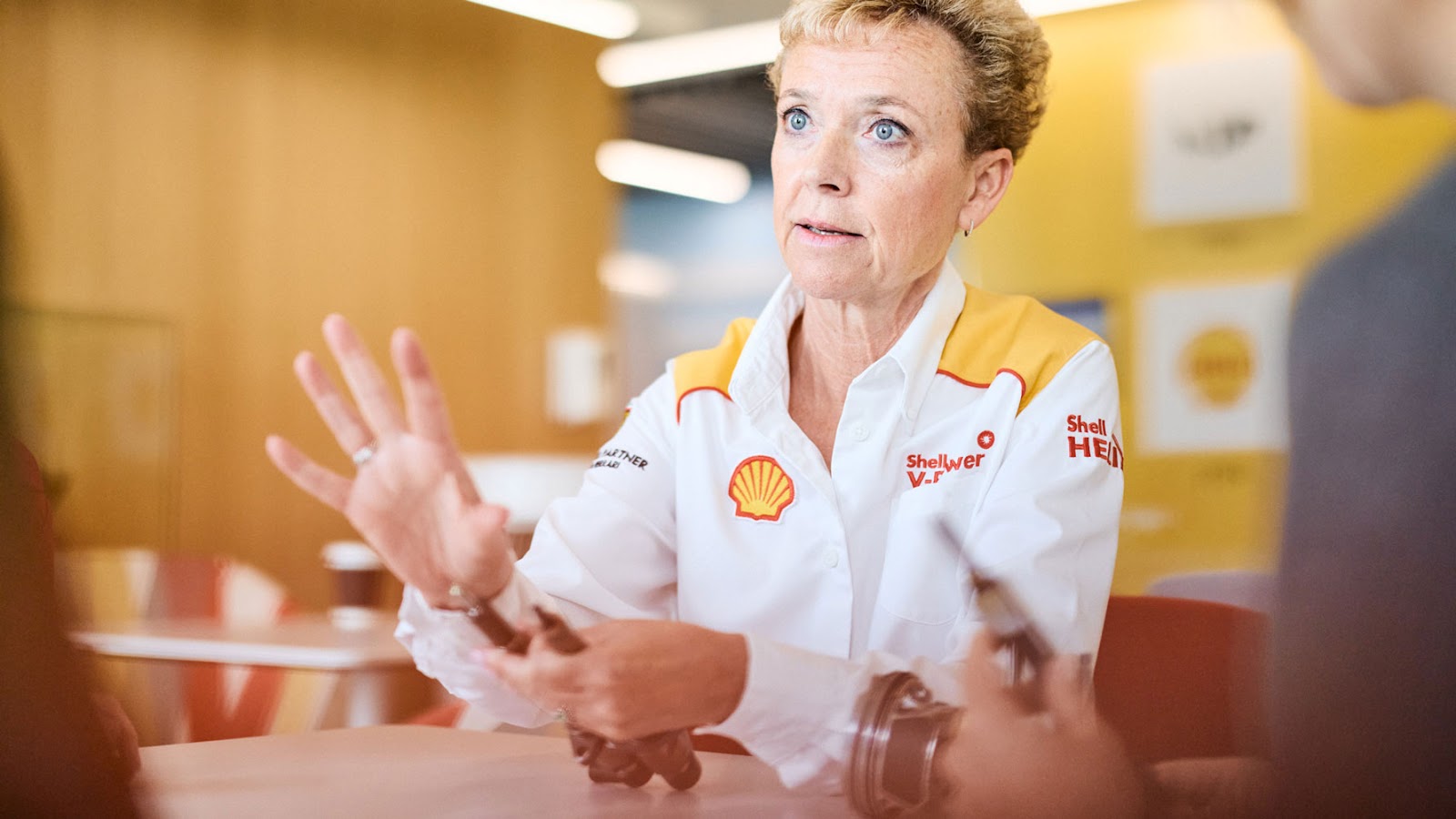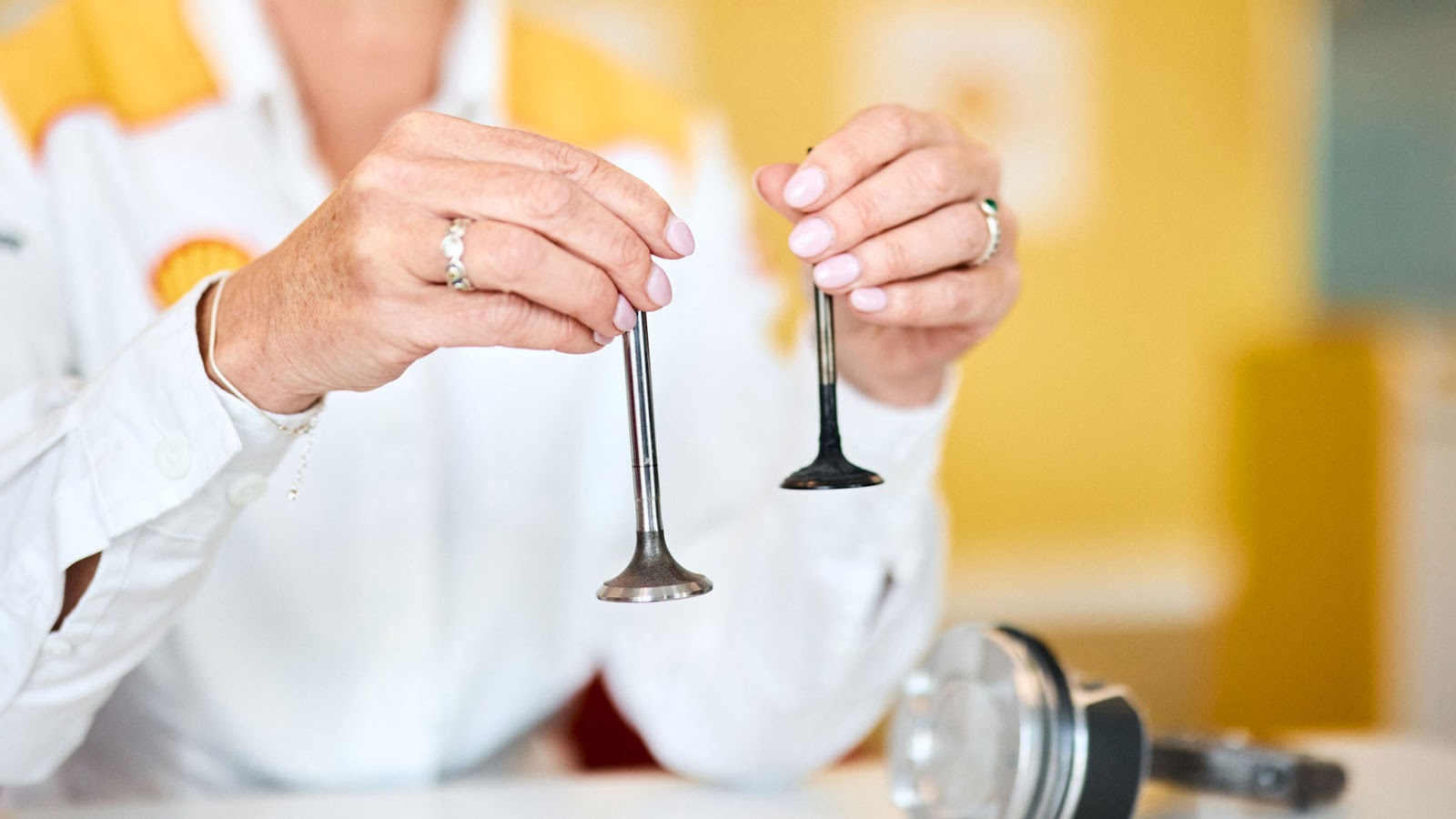
From laboratory to the pump – the making of a premium fuel
To celebrate the upcoming release of Transformers One, Shell lifts the lid on its own main character: Shell V-Power
This October, Transformers One will take you back to where it all began, with the mother of all origin stories. This new film delves into the formative friendship between Optimus Prime and Megatron – a relationship that’s destined to shape the future of their home planet Cybertron – before things go decidedly south between the pair (the fallout of which has been spectacularly detailed in the franchise’s previous seven films).
And along with a thrilling storyline, Transformers One also has a ludicrously glittering cast list, including the voices of Chris Hemsworth, Brian Tyree Henry, Scarlett Johansson, Keegan-Michael Key, Jon Hamm, Laurence Fishburne and Steve Buscemi.
So, it’s safe to say, you’re in for a treat – and better still, Shell V-Power has teamed up with Paramount Pictures to bring motorists and moviegoers alike a slice of the action.
Unlock exclusive Transformers One offers when you choose Shell V-Power. Find out more here.
 Years in the making
Years in the making
But what does one of the year’s biggest blockbusters have to do with one of the world’s leading premium fuels? Well, as it turns out, quite a bit. For a start, the former originally hit UK pumps and the latter our screens within a year of each other – 2006 and 2007 respectively – and both have been constantly evolving ever since.
Jo Smith is a fuel scientist and has been at Shell for more than 35 years, so knows better than anyone just how much iteration and inspiration has gone into the new and improved Shell V-Power in use today.
“It typically takes about five years to take an idea and a concept right through to a new fuel formulation,” she says. “There are several key steps in that process. The first is to talk to customers and understand what they want from their fuels. We also work with engine manufacturers and academia to understand latest available engine technology trends – this is key as we need to understand the environment inside the engine where our fuels operate. Once we've got that direction, we then start testing ideas in the laboratory, to see how we can make our fuels unique and differentiated.”
Some of the hard work is done at one of Shell’s state-of-the-art R&D facilities in Hamburg. Its bench engine and chassis dynamometer (rolling road, to you and me) facilities are used to test fuels in roadgoing vehicles of all sizes, shapes and ages, under a range of test conditions. “We can measure the performance of a fuel across multiple tests, sometimes totalling hundreds or even thousands of miles, without the vehicle ever leaving the facility,” Jo explains.
“We also have an on-road test route that we run. It's about 250 miles and it's a mix of urban, rural and Autobahn or motorway driving. So, it means we can check how our fuels are performing under real and varying conditions with real drivers out on the road.”
Find out more about Shell V-Power’s exclusive Transformers One offers
 Clean as a whistle
Clean as a whistle
The Transformers franchise and Shell V-Power also share common ground when it comes to the concept of ‘more than meets the eye’. Of course, it’s one of the core themes of the films, while Shell V-Power does a whole lot more than simply power your car. For one thing, it up to 100% cleans critical engine parts with every fill[1]. But why is that so important, and how much can it impact performance? Unsurprisingly, Jo has the answers.
“There are two types of petrol engine technology out on the road; first there is the more conventional ‘port fuel injection’, or PFI engine technology where the fuel is injected indirectly into the engine intake over an inlet valve. With time and lower quality fuels, performance-robbing deposits can start to form on the back of the inlet valve,” she says.
“These deposits impact how the air and fuel flow into the combustion chamber, so the combustion isn’t optimised. These deposits can act like a sponge, grabbing some of that fuel and soaking it up, thus preventing the fuel from entering the combustion chamber in the right amount and at the right time. This can lead to non-optimum combustion.”
But what of more modern petrol engines with direct injection technology? In a direct injection engine, the fuel injector is located inside the combustion chamber. Whilst good for efficiency, performance-robbing deposits can now form on the injector tip. “On the end of the injector tip are a series of tiny holes where the fuel is injected under high pressure. Deposits can now start to form in and around this fuel injector tip which can start to restrict the fuel flow ,” Jo explains.
“That impacts how much fuel is injected into the combustion chamber and can create an irregular fuel spray, which again is not good for combustion. Think about your shower head at home – when there’s a limescale build up, it can really affect how well it does the job. This issue is also relevant for diesel engines; the diesel fuel injector plays a key role in how a diesel engine performs, so it’s important that the fuel injector is kept free from harmful deposit that can build up on the injector tip,” she says.
“I absolutely love what I do, because I get to see the science and research and development behind our premium petrol and diesel fuels”
Pretty serious stuff then. So, how does Shell V-Power come to the rescue? “We've got powerful cleaning molecules in our Shell V-Power fuels that help remove these performance-robbing deposits and also protect against future build up on the critical inlet valves and fuel injectors,” [2]says Jo.
It might not seem like much, but considering just how integral your engine is to your car’s performance, Shell V-Power is on its own kind of Hollywood hero mission to protect your driving experience. As for how Jo sees it, she concludes: “Our first Shell V-Power launch in the UK was 2006, so with every generation, we're further improving versus the previous one. I absolutely love what I do, because I get to see the science and research and development behind our premium petrol and diesel fuels, plus also see the difference it makes to everyday users out on the road too.”
Want to see how quickly Shell V-Power Unleaded and Shell V-Power Diesel can make a difference to your engine’s performance? Try it out for yourself.
[1] Removes and protects from the build up of performance robbing deposits on key fuel system components such as intake valves and/or fuel injectors. Cleanliness and engine performance recovery demonstrated using industry standard and Shell proprietary tests. With continuous use of Shell V-Power from the first full tank fill. Actual effects and benefits may vary according to vehicle type, vehicle age, vehicle condition and driving style. No guarantees provided. See Shell fuels | Shell UK for more information
[2] Removes and protects from the build up of performance robbing deposits on key fuel system components such as intake valves and/or fuel injectors. Cleanliness and engine performance recovery demonstrated using industry standard and Shell proprietary tests. With continuous use of Shell V-Power from the first full tank fill. Actual effects and benefits may vary according to vehicle type, vehicle age, vehicle condition and driving style. No guarantees provided. See Shell fuels | Shell UK for more information
Featured









